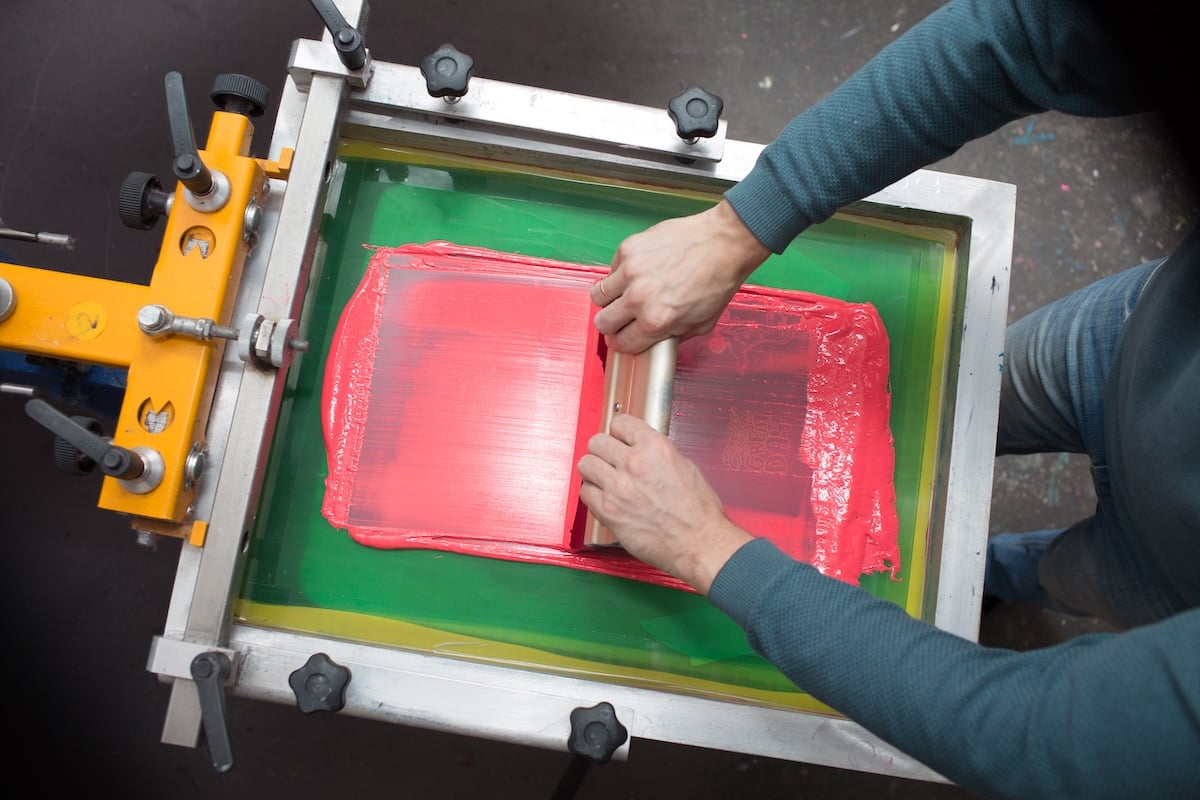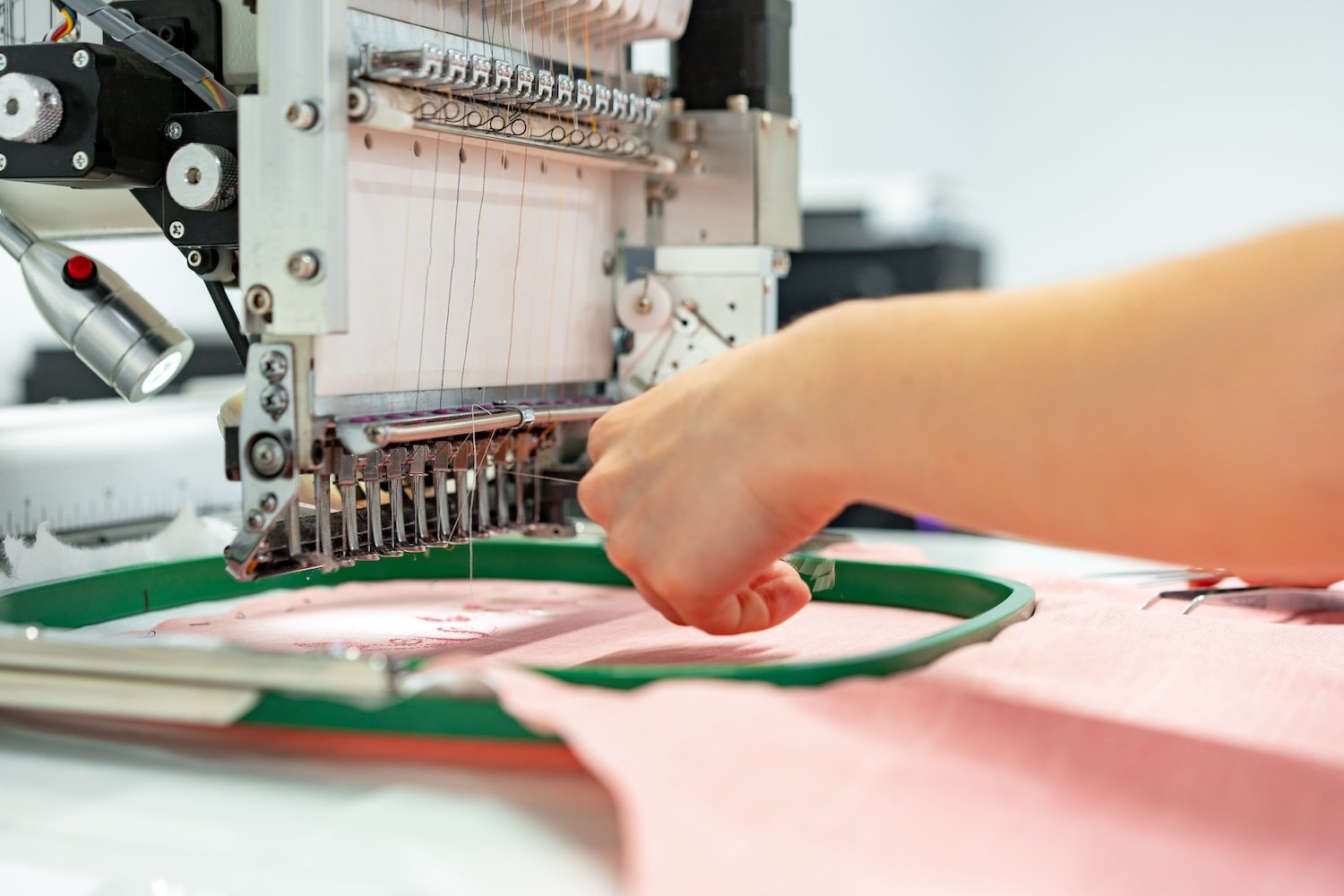
DTG Printing for Small Batches: Perfect for Complex Designs and Niche Markets

In today's personalized marketplace, producing small batches of high-quality custom apparel efficiently has become a significant competitive advantage. Direct-to-Garment (DTG) printing technology offers businesses a way to serve niche markets with complex designs without the prohibitive setup costs and minimum order requirements of traditional methods.
This guide explores how DTG printing is revolutionizing small batch production, with insights from industry experts and print fulfillment specialists like Dimona Print-on-Demand who implement these capabilities for businesses targeting specialized markets.
Understanding DTG Technology for Small Batch Production
Direct-to-Garment printing applies water-based inks directly to textiles through specialized inkjet technology:
The DTG Printing Process
The process involves digital design preparation, garment pre-treatment (particularly for dark fabrics), direct printing, heat curing, and quality inspection. Modern DTG printers enable photorealistic detail impossible with earlier technologies.
Small Batch Economics
DTG offers a different financial model from traditional methods:
- No Setup Fees or Screens: Eliminating upfront costs
- No Minimum Requirements: Economical single-piece production
- Digital Workflow: Reduced labor and material waste
- On-Demand Production: Minimal inventory investment
The break-even point between DTG and screen printing typically occurs between 12-24 units, with DTG maintaining a clear advantage below this threshold.
Why DTG Excels for Complex Designs
Unlimited Color Capabilities
- Full-Color Spectrum: No additional cost for multiple colors
- Photorealistic Reproduction: Ability to print photographic images
- Smooth Gradients: Seamless color transitions
- Complete Color Gamut: Vibrant colors even on dark garments
Detail Reproduction and Resolution
DTG excels at preserving fine lines, subtle shading, texture rendering, and consistent detail across the entire design—capabilities particularly valuable for complex logos and detailed illustrations.
Color Consistency Across Runs
Digital color management ensures repeatability regardless of order size or time between runs, critical for maintaining brand standards across products.
Niche Market Applications
Limited Edition Collections
DTG enables numbered series, drop-model releases, artist collaborations, and event-specific merchandise—capitalizing on scarcity-driven demand.
Test Marketing and Prototyping
Businesses can produce sample runs to gauge market response, create multiple variants for testing, implement rapid design improvements, and validate products before larger investments.
Personalized and Custom Products
From name personalization to custom corporate gifts and special occasion products, DTG makes the "batch of one" economically viable.
Micro-Brands and Creator Merchandise
Content creators, influencers, podcasters, and niche communities can produce small quantities of professional-quality merchandise.
Cost-Benefit Analysis
Comparative Economics by Order Size
| Order Size | DTG Cost Advantage | Traditional Printing Advantage |
|---|---|---|
| 1-10 units | Significant (30-75% lower) | None |
| 11-24 units | Moderate (15-30% lower) | None |
| 25-50 units | Minimal (0-15% lower) | Depends on complexity |
| 50+ units | Only for complex designs | For simple designs |
Design Complexity Considerations
- Simple 1-2 Color Designs: DTG advantage only for very small quantities
- Multi-Color Designs: DTG advantage extends to medium batches
- Complex/Photorealistic Designs: DTG maintains advantage even for larger runs
Time-to-Market Value
DTG offers rapid production capability, reduced inventory risk, better trend responsiveness, and improved cash flow through just-in-time production.
Implementation Strategies
In-House Equipment Investment
Options range from entry-level ($10,000-$20,000) to commercial systems ($40,000-$200,000), typically requiring 14-18 months to achieve ROI.
Print-on-Demand Partners
Utilizing specialized providers eliminates capital requirements while providing expertise access, scalable capacity, and current technology.
Hybrid Approaches
Many businesses implement mixed strategies based on order size, complexity, timing, and product type.
Quality Considerations
Garment Selection
Optimal results require 100% cotton or high-cotton blends, smooth construction, proper pre-treatment, and base color considerations.
Print Settings and Color Management
Technical settings including resolution, color profiles, ink density, and curing parameters directly affect output quality.
Quality Control Processes
Consistent results require first article inspection, sampling protocols, color verification, and wash testing.
Future Trends
Technological Advances
Continuing innovation includes print head improvements, better ink formulations, automation integration, and sustainability improvements.
Market Evolution
Consumer preferences are shifting toward micro-collections, hyper-personalization, sustainability, and experience-connected products.
Small Batch DTG Success Factors
Design Optimization for DTG
- Utilize the full color spectrum
- Incorporate detailed elements
- Design with appropriate resolution
- Consider garment color in the design process
Target Market Alignment
- Focus on customers who value design complexity
- Target markets willing to pay premium prices
- Identify communities with specific visual preferences
- Align with consumers who appreciate rapid design evolution
DTG's Strategic Advantage
Direct-to-Garment printing transforms small batch apparel production economics by eliminating setup costs, removing minimum requirements, and enabling unlimited design complexity. For brands focusing on complex designs, limited editions, or specific customer segments, DTG provides a strategic business enabler.
Whether implemented in-house or through partners like Dimona, DTG offers a pathway to serve markets traditional methods cannot reach efficiently.
Ready to explore how DTG printing can transform your small batch production? Contact Dimona to discuss your specific design and market requirements.

